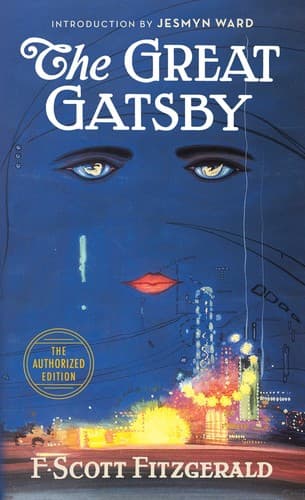
The Great Gatsby
by F. Scott Fitzgerald
My Rating:★★★★★
- Published
- 1925
- Read
- 2024-01-15
- Pages
- 180
- Publisher
- Scribner
Genres
FictionClassic
Description
A portrait of the Jazz Age in all of its decadence and excess, Gatsby captured the spirit of the 1920s with unforgettable characters.
My Review
## Overview
*The Great Gatsby* is F. Scott Fitzgerald's masterpiece about the American Dream, obsession, and the hollow decadence of the Jazz Age. Set in the summer of 1922, the novel follows Nick Carraway as he becomes entangled in the lives of his mysterious neighbor Jay Gatsby and his cousin Daisy Buchanan.
This was my third reading of Gatsby, and each time I discover new layers of meaning. Fitzgerald's prose is remarkable—every sentence is carefully crafted, every image precisely chosen.
## What I Loved
**The Writing**: Fitzgerald's prose is simply gorgeous. His descriptions of Gatsby's parties, the oppressive summer heat, and the valley of ashes are vivid and haunting. The famous last lines about boats against the current have stayed with me for years.
**The Symbolism**: The green light, the eyes of Doctor T.J. Eckleburg, the Valley of Ashes—each symbol adds depth without feeling heavy-handed. Fitzgerald trusts the reader to make connections.
**Nick as Narrator**: Nick Carraway is the perfect observer—close enough to the action to see it clearly, but distant enough to remain somewhat objective. His Midwestern sensibility contrasts beautifully with East Coast excess.
**The Tragedy**: Gatsby's devotion to an impossible dream is heartbreaking. His belief that he can recreate the past, that Daisy will love him as she once did, makes him both admirable and tragic.
## What Didn't Work
**Daisy's Character**: While I understand she represents a certain type of privileged woman of her era, Daisy feels less fully realized than the other characters. She's more symbol than person, which may be intentional but feels frustrating.
**Pacing**: The first half can feel slow, especially on rereading. The parties and descriptions are beautiful, but the plot doesn't really accelerate until the confrontation in the Plaza Hotel.
## Key Themes
**The American Dream**: Gatsby embodies both the promise and the failure of the American Dream. He reinvents himself, achieves wealth, but can never truly belong to the world he's created. His dream is corrupted by materialism and impossible nostalgia.
**Class and Social Mobility**: The novel exposes the rigid class barriers of the 1920s. Gatsby's wealth can buy a mansion and elaborate parties, but it can't buy him acceptance into old money society.
**Time and Memory**: Gatsby's fatal flaw is his belief that he can recreate the past. "Can't repeat the past? Why of course you can!" But Fitzgerald shows us that time only moves forward, and the past is irretrievable.
## Final Thoughts
*The Great Gatsby* remains one of the greatest American novels. It's a perfect encapsulation of its era while remaining timeless in its exploration of longing, class, and the corruption of dreams. The final image of Gatsby reaching toward the green light, alone in the darkness, is one of literature's most powerful.
Every reader should experience this book at least once. It's short enough to read in an afternoon, but rich enough to reward multiple readings.
**Who should read this**: Anyone interested in American literature, the Jazz Age, or beautiful prose. Perfect for readers who appreciate character-driven tragedies and social commentary.
## Memorable Quotes
> "So we beat on, boats against the current, borne back ceaselessly into the past."
> "I hope she'll be a fool—that's the best thing a girl can be in this world, a beautiful little fool."
> "Gatsby believed in the green light, the orgastic future that year by year recedes before us. It eluded us then, but that's no matter—tomorrow we will run faster, stretch out our arms farther.... And one fine morning—"
> "Let us learn to show our friendship for a man when he is alive and not after he is dead."
> "They were careless people, Tom and Daisy—they smashed up things and creatures and then retreated back into their money or their vast carelessness, or whatever it was that kept them together, and let other people clean up the mess they had made."
Highlights
- So we beat on, boats against the current, borne back ceaselessly into the past.
- I hope she'll be a fool—that's the best thing a girl can be in this world, a beautiful little fool.